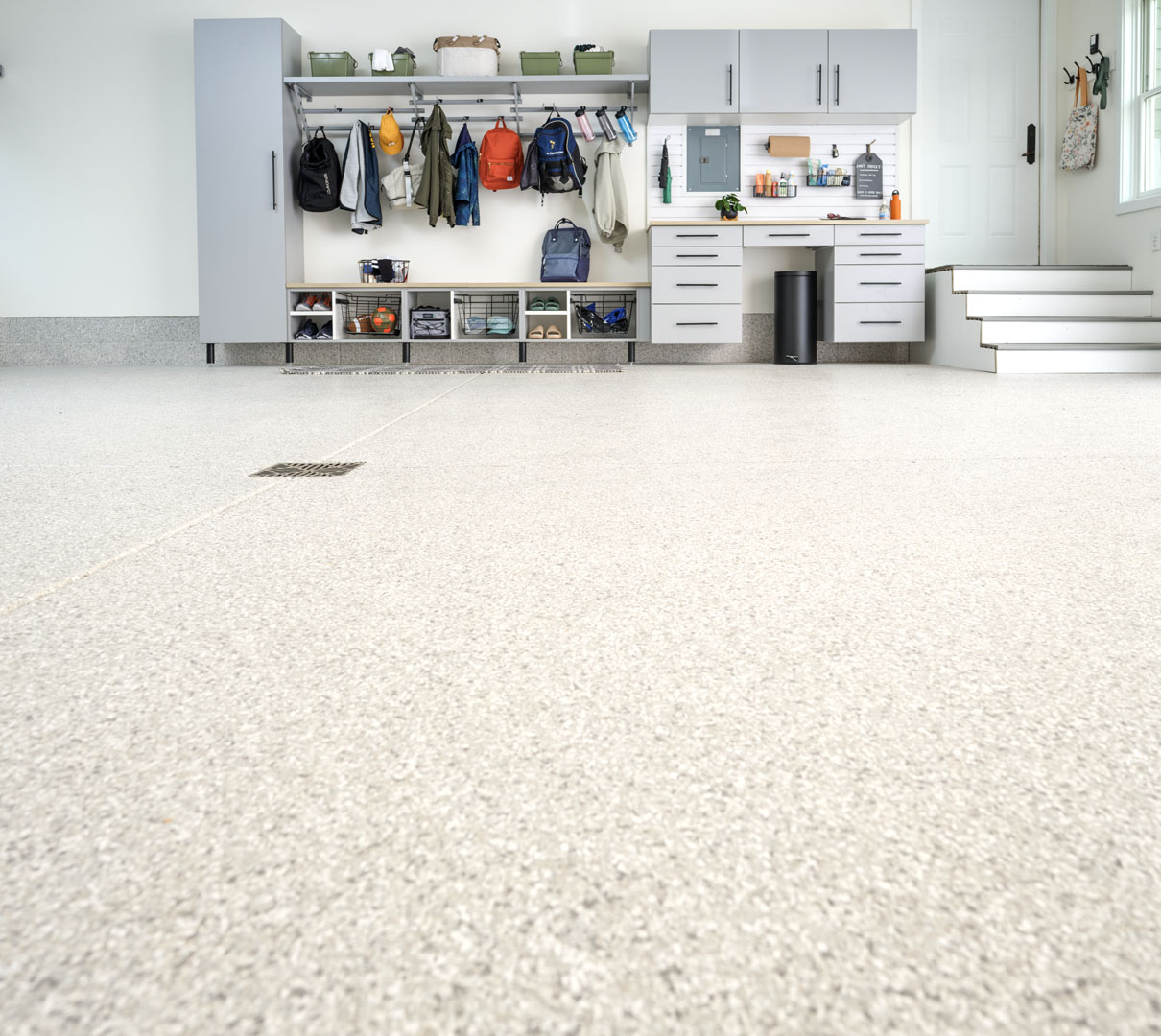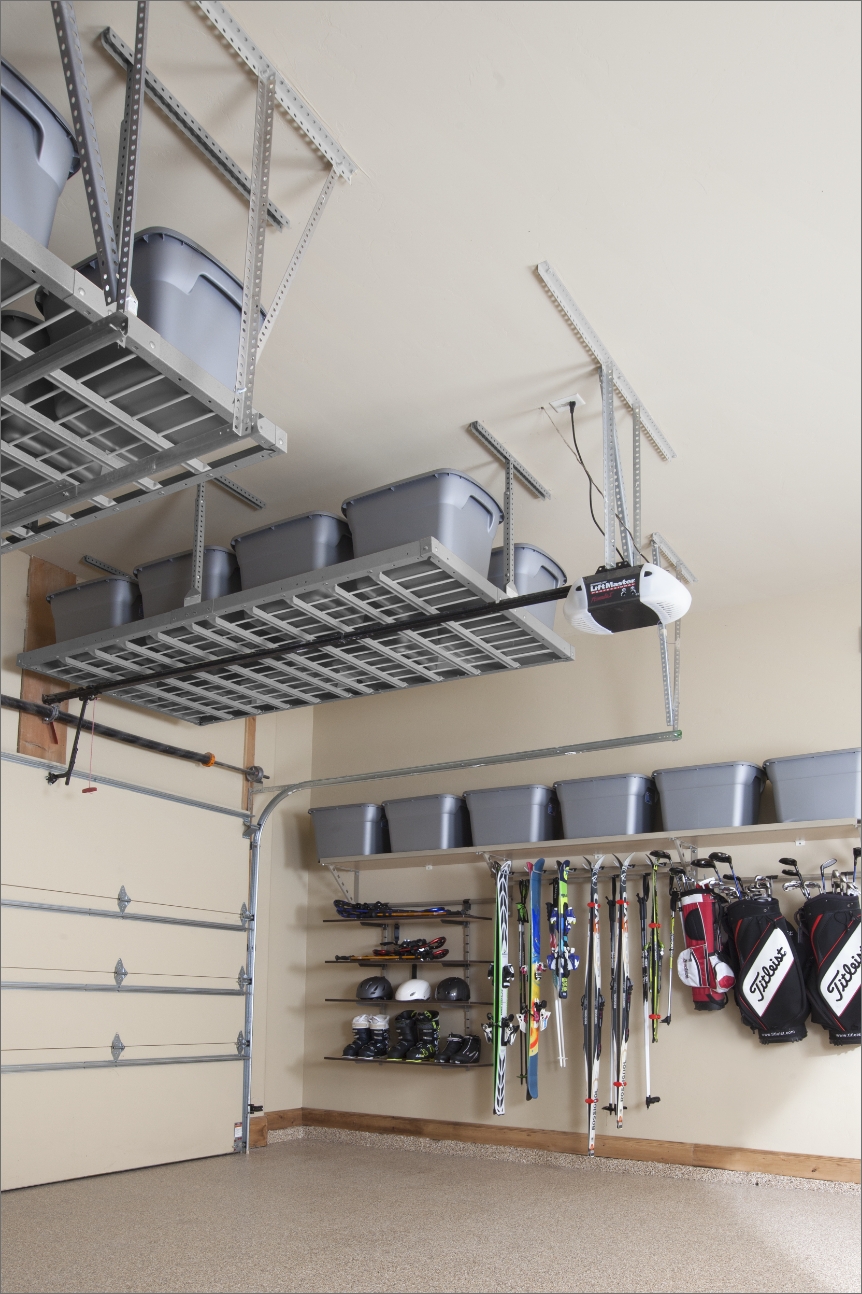Considering an Epoxy Garage Floor? Read This First.

When upgrading your garage, choosing the right flooring can mean the difference between a safe environment for your family and a treacherous DIY project gone wrong. Before you dive in, it’s essential to understand what you’re getting into. We’ve got everything you need to know about garage flooring, from comparing a professional polyaspartic coating to the DIY epoxy garage floor approach, and the benefits of professional installation.
Understanding Polyaspartic vs. Epoxy Coatings
One of the critical decisions you’ll face when considering a garage floor coating is choosing between polyaspartic and epoxy coatings. Both have their merits, but they differ significantly in application, curing time, and overall performance.
Epoxy Coatings
Epoxy is a type of garage floor coating that combines resin and hardeners. When these two components mix, they chemically react to form a rigid, plastic-like surface. This coating adheres well to concrete and creates a durable, long-lasting finish resistant to stains, chemicals, and wear and tear. However, it can take longer to cure than polyaspartic coatings, typically requiring several days.
Polyaspartic Coatings
Polyaspartic coatings are a newer type of protective and decorative floor finish known for their exceptional durability and fast curing time. They apply as a liquid and quickly cure to form a hard surface, resistant to stains, abrasions, chemicals, and UV light. Unlike traditional epoxy coatings, polyaspartic coatings can be applied in various temperatures, and it cures much faster than epoxy, often within hours, reducing downtime. Its versatility in finish and color and its long-lasting nature make polyaspartic floor coating a preferred option for both commercial and residential flooring needs.
Comparing Durability: Polyaspartic vs. Epoxy for Long-Lasting Performance
When it comes to selecting a garage floor coating that stands the test of time, durability is a key consideration. Both polyaspartic and epoxy coatings offer robust solutions, but a closer examination reveals compelling reasons why polyaspartic might be the superior choice for those seeking long-lasting performance.
Epoxy’s Achilles Heel: Extended Curing Times
Epoxy coatings, while known for their durability, have a notable drawback—prolonged curing times. The curing process can take several days, rendering your garage inaccessible and disrupting your routine. This extended downtime may pose an inconvenience, especially for those with a busy lifestyle.
Polyaspartic’s Swift Cure: Minimizing Disruption
Polyaspartic coatings, on the other hand, boast a remarkable advantage with their rapid curing time, often completing the process within hours. This feature significantly reduces downtime, allowing you to swiftly return to your garage activities without a prolonged wait. For those who value efficiency and immediate results, polyaspartic coatings emerge as the clear winner.
Resilience in the Face of Heavy Use
Polyaspartic coatings excel in areas subjected to heavy traffic and constant use. Whether you’re parking vehicles, working on DIY projects, or utilizing your garage as a multifunctional space, polyaspartic coatings showcase unparalleled resilience. Their resistance to impact, abrasions, and wear ensures that your garage floor maintains its pristine appearance even under demanding conditions.
Weathering the Test of Time: UV Resistance
Another crucial factor in the durability equation is UV resistance. When exposed to the Sun’s rays, whether through an open garage door or on a pool deck, epoxy coatings experience fading and yellowing over time. This weakens their effectiveness, leading to cracking and chipping over time. By contrast, polyaspartic coatings demonstrate superior UV resistance, preserving their color and finish for the long haul. This feature not only ensures a lasting visual appeal but also speaks to the overall durability of the coating.
The Truth About DIY Epoxy Flooring
Embarking on a do-it-yourself journey with epoxy flooring may seem like an appealing cost-effective solution at first glance, promising a resilient and visually appealing garage floor. However, the reality of the DIY epoxy experience often reveals a series of pain points that can turn your home improvement project into a challenging endeavor.
While epoxy coatings offer durability, the process involves mixing resin and hardeners, which demands precision and expertise to achieve optimal results. Unlike the swift curing times of professional-grade polyaspartic coatings, epoxy can take several days to cure fully, leaving your garage inaccessible and disrupting your daily routine. Additionally, the intricate application process and the need for meticulous surface preparation may lead to uneven finishes and a less-than-desirable outcome.
In the end, what may seem like a cost-saving venture could turn into a time-consuming and frustrating experience, emphasizing the value of considering professional assistance for a seamless and efficient garage floor upgrade.
Benefits of Hiring a Professional for Polyaspartic Coatings
While a DIY approach can be satisfying, hiring a professional for your garage floor coating offers several benefits:
- Expertise: Professionals have the experience and knowledge to ensure a high-quality finish.
- Equipment: They have access to commercial-grade equipment and materials.
- Timesaving: A professional can complete the job faster and with less disruption to your routine.
- Longevity: Properly installed polyaspartic flooring by a professional can last longer and look better.
- Ease of Installation: Professionals streamline the installation process, sparing you the complexities and challenges associated with a daunting DIY project.
Whether you opt for a DIY approach or hire a professional, updated flooring can transform the look and functionality of your garage. Schedule a free consultation with the experts at Improve My Garage to learn more about the garage floor coating that best suits your needs.


